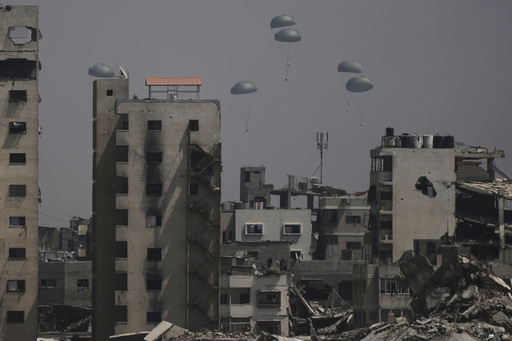In an unprecedented move, two leading Israeli rights organizations have accused Israel of committing genocide in Gaza, marking a significant moment as these claims originate from Jewish-led groups within the country. This assertion by B’Tselem and Physicians for Human Rights-Israel comes amidst ongoing debates over whether Israel’s military actions in Gaza, initiated in response to a deadly attack by Hamas on October 7, 2023, constitute genocide. This attack resulted in the deaths of approximately 1,200 individuals and over 250 hostages were taken.
While Palestinians and multiple international human rights groups have made similar claims, Israel maintains that such allegations are unfounded. The International Court of Justice is currently handling a genocide lawsuit lodged by South Africa against Israel. Israel, burdened with the memories of the Holocaust, has typically avoided such accusations, seeing the operations in Gaza as a necessary reaction to a grave threat, rather than a genocidal action. The use of genocide terminology in Israeli society is taboo, largely due to its emotional connection to the Holocaust.
Prominent internationally, but on the political periphery in Israel, these groups’ accusation challenges societal norms by questioning Israel’s conduct in Gaza. Guy Shalev, head of Physicians for Human Rights-Israel, stated that local human rights organizations confronting this reality might help people acknowledge the situation without dismissing it as antisemitic or biased. Israel’s government labels these genocide claims as politically motivated and firmly rejects them, emphasizing that its military targets Hamas, not civilians.
In separate reports that echo previous assertions from international bodies like Human Rights Watch and Amnesty International, the Israeli groups argue that Israel’s policies and military actions in Gaza are elements of genocide. These reports, assembled without access to Gaza, rely on documentation, testimonies, and legal consultations. According to B’Tselem, the conflict shift—beginning with Hamas’ attack—transformed Israeli policy from control to annihilation. This group has long criticized Israel’s policies towards Palestinians, asserting that they amount to apartheid.
Physicians for Human Rights-Israel provided an in-depth analysis, claiming that Israel dismantled essential systems in Gaza, affecting health, water, electricity, and food access. They argue that these actions fulfill certain genocide criteria under international law, suggesting deliberate harm to a group’s survival. The repeated official endorsements for the destruction of Gaza’s infrastructure further fuel these genocide allegations. Reports from Gaza’s health ministry indicate over 147 malnutrition-related deaths, highlighting the humanitarian crisis.
The genocide label strikes a deep chord in Israel, deeply interwoven with its history of the Holocaust. Shalev, deeply connected to Holocaust survivors, expressed the difficulty in arriving at such a conclusion, yet felt it necessary given his upbringing. Though Israeli criticism of the conflict has mostly aimed at Prime Minister Netanyahu’s decision-making, broader scrutiny of military conduct has been limited, partly due to prevailing belief in Israel’s legitimacy and many Israelis’ military ties. However, some Israeli soldiers have refused to serve, questioning the conflict’s nature.
Jeffrey Herf, an antisemitism historian, suggests these genocide claims overlook the dual-party nature of the conflict, discounting Hamas’ military role and Israel’s defense rights. Historian Tom Segev muses that despite the severity of the accusation, Israeli public focus remains primarily on hostages, not Gazan civilians. Rights groups urge the global and Israeli communities to break their silence and uphold ethical responsibilities. Sarit Michaeli of B’Tselem stresses the urgency for international voices to stand with the victims and advocate for tangible protective measures for Palestinians.


